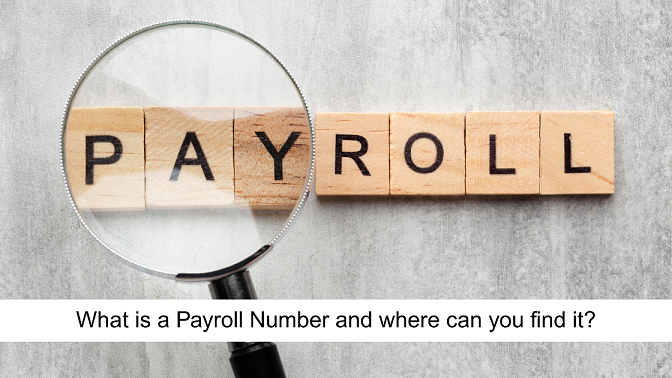
A payroll number is a unique code made up of 3 to 8 letters and numbers that identifies an employee within their company’s pay system. It helps track wages and deductions accurately and is usually found on payslips or other official work documents.
You can usually find your payroll number on the top left or right corner of your payslip. If it’s not on the payslip or you don’t get one often, check your timesheet, internal memos, or other official work documents.
It’s a unique code assigned by your employer to identify you in their payroll system.
It helps ensure you are paid correctly and makes it easier to handle tax and deductions.
Your payroll number on payslip is usually printed at the top left or right corner, near your name or NI number
Payroll numbers have no fixed UK format some are all numbers (e.g., 12345), while others combine letters and numbers (e.g., HR007 or EMP001).
If you’re wondering how to find out your payroll number, start by checking your most recent payslip or contacting HR:
Knowing your payroll number is helpful because:
Payroll numbers serve many important purposes:
Each employee has their own payroll number, which avoids mix-ups when processing salaries and taxes.
It simplifies tracking of your wages, bonuses, and any deductions.
If you switch departments or roles within your company, your payroll number may sometimes change to reflect that.
Employers use payroll numbers to report payroll details correctly to HMRC (Her Majesty’s Revenue and Customs) as part of the PAYE system.
Your payroll number keeps your personal information secure by replacing sensitive details with a simple code.
For companies with offices or branches in different places, payroll numbers help organise payrolls smoothly.
Many businesses assign payroll numbers automatically through payroll software to keep things consistent and efficient.
Understanding the difference between a payroll number and a WH number can help you manage your pay and tax details better. Both are employee identifiers, but are used differently by organisations.
A PAYE reference is a number given by HMRC to your employer that identifies their tax account for income tax and National Insurance. A payroll number, on the other hand, is a unique code your employer gives you to track your personal salary and deductions.
Sometimes, employers may not use payroll numbers to keep track of employee pay. Instead, they might use other methods to manage payroll records. Even without payroll numbers, your employer still makes sure your pay and tax details are handled properly according to UK rules.
Understanding your payroll number is key to keeping your pay, tax, and personal information accurate and secure. Whether found on your payslip or through HR, it helps avoid mistakes and makes payroll management easier.
Even if your employer doesn’t use payroll numbers, know that your pay and tax are still properly handled under UK law. Always keep your payroll details safe and ask your employer if you’re unsure about your payroll number or other employee codes.
Managing your payroll and tax can be complicated. PHS Associates offer expert support to help you file your tax returns correctly and on time.
We provide clear guidance throughout the payroll process, ensuring your records are accurate and compliant with UK regulations.
If you need reliable and professional assistance with your payroll or tax questions, contact PHS Associates at 0208 8611685 or email info@phs-uk.co.uk. We are here to make the process simple and stress-free for you.